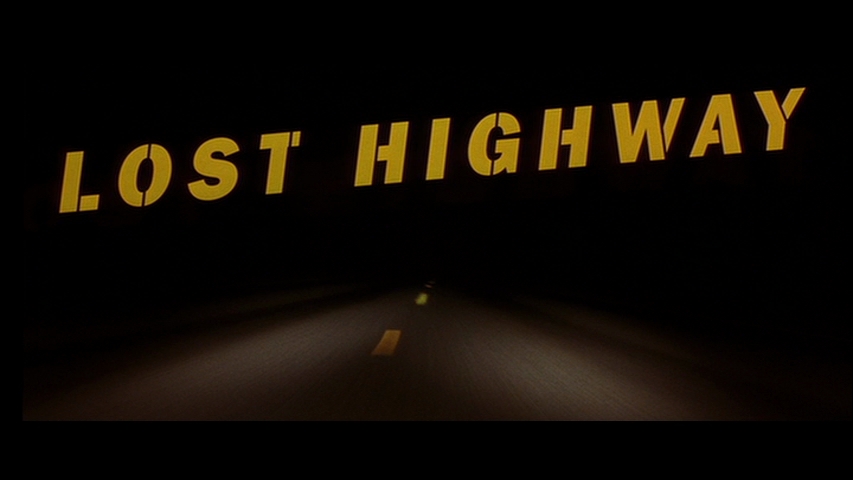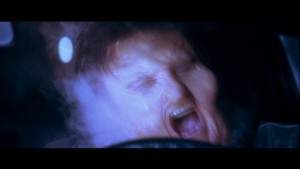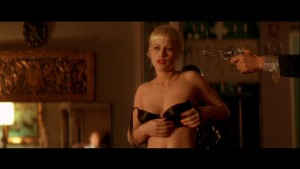There are many ways one can approach a David Lynch film. The literal interpretation of events can only carry you so far as seemingly inexplicable elements are thrown in to throw you off at every turn. As is most often the case, multiple viewings yield multiple perceptions and in this review, I will do my best to interpret what I’ve seen in order to best describe the overall spirit and nature of the film: Lost Highway.
The story begins with Fred Madison (Bill Pullman) receiving a strange package in the mail. Inside the package is a VHS tape containing filmed footage of his property. Unsure what this could mean, Fred contacts the police who offer up little information or reassurance other than the fact that the security system was never once breached. Meanwhile, Fred suspects that his wife is being unfaithful and this notion is only made more plausible by her gregarious nature at a party he attends.
During the festivities, Fred meets a mystery man with a white face who speaks to him cryptically about events going on. Fred soon finds another VHS tape with footage of him killing his own wife. He doesn’t know how this could be possible, and the fact that he can’t explain it doesn’t help when the police come calling. Arrested for the murder of his wife, he is sent to death row. As he sits in the dark and dread, waiting for his time, his head begins to bulge grotesquely and he experiences spasms and seizures. Upon checking on Fred, the guards are baffled to find that Fred no longer resides in the cell: instead it’s a young man named Pete Dayton (Balthazar Getty).
As is the case with many Lynch films, the raw force of anger and passion plays a major role, manifesting itself to such extremes and personified by wicked and corrupt men of power. In this case, a depraved and evil man named Mr. Eddy represents a sense of lust and what his desire for the flesh will do to those around him; who he hurts and who he dominates.
Fred’s transformation into Pete is inexplicable and untouchable if you approach this film literally, however, if you are to analyze what this could mean, some answers rise to the surface. If Fred truly did kill his wife, it was no doubt a crime of passion leaving him an emotionally crippled and confused person. As he sits waiting for death, his mind begins to drift and he imagines his life, his face, his soul being completely different. After all, prison wouldn’t be prison if the prisoners didn’t have anything better to long for.
Another way of looking at this is that Fred never went to prison, but the prison itself was one in his mind. After committing such a heinous crime, he severely limited his life and placed himself in a sort of self-imposed prison. By changing his identity, or morphing, into someone else, he adopted a new lifestyle and a fresh start.
There are so many ways to interpret a David Lynch film and one or all or none of the things I said may be what he was actually thinking at the time. Unlike many naysayers, I do happen to believe he has his own interpretation and idea for a film; however that interpretation is solely his. I understand why he refrains from divulging what we could call “the facts” regarding his films. By dispelling any kind of questions or mystery, the very soul and essence of the film becomes your everyday, cookie-cutter story. Lynch attempts to visualize the abstract and while many believe a resolution is missing, the fact of the matter is that there very well could be a resolution, but you just might not like it.



